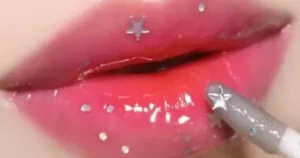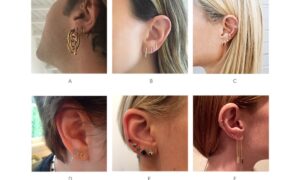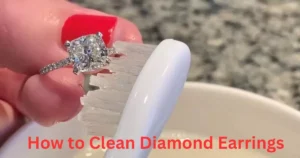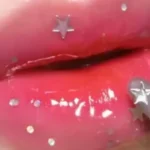Hair loss can be distressing, but understanding the potential causes can help you take action. One key contributor to hair thinning and balding patches is nutrient deficiencies, especially vitamins. Getting insufficient amounts of certain vitamins over time disrupts healthy hair growth.
The good news is that adjusting your vitamin intake may support regrowth. Read on to learn which vitamin deficiencies commonly trigger alopecia and thinning strands—plus discover solutions available from your Delray dermatologists.
Can Vitamin D Deficiency Cause Hair Loss?
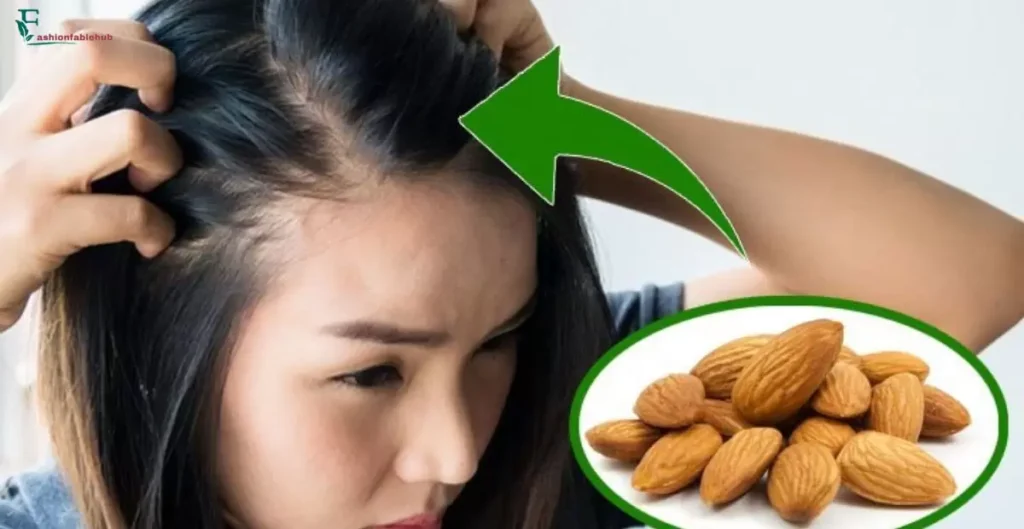
Yes, vitamin D deficiency is closely tied to hair thinning and loss. This vital “sunshine vitamin” has many roles, including prompting hair follicles to grow during the growth cycle.
Getting sufficient vitamin D also maintains the supply of calcium and other building blocks follicles need to produce thick, robust strands. Deficiency causes hair to stop growing and may trigger excessive shedding.
Bar Chart illustrating the percentage of people with vitamin D deficiency in various regions of the world:
| Region | % Deficient |
| Europe | 40% |
| India | 70-100% |
| Middle East | 50-90% |
| US | 42% |
Since we get most vitamin D from sunlight, deficiency is common during winter or if you spend minimal time outdoors. Insufficient vitamin D also occurs frequently in people following vegetarian, vegan, or restrictive diets since few foods contain much of this nutrient.
Supplementing with vitamin D restores adequate levels so hair can grow robustly. Getting sufficient vitamin D also supports healthy skin, nails, and scalp.
Can Vitamin B12 Deficiency Cause Hair Loss?
Lacking sufficient vitamin B12 also frequently causes hair thinning, excessive shedding patches, or complete baldness. B12 plays diverse roles in hair tissue growth, from preventing dryness to supplying vital nutrients.
Your body requires B12 to produce red blood cells that carry oxygen and nutrients to follicles so they develop strong, thick strands. Without enough B12, cells slowly lose their ability to divide and grow properly, stunting hair.
Table showing B12 amounts found in various food sources:
| Food | B12 per Serving |
| Liver | Over 1,000% DV |
| Fish | 25-100% DV |
| Beef | 25% DV |
| Eggs | 10% DV |
| Dairy | 10% DV |
Since B12 mainly occurs naturally in animal products, vegetarian and vegans often lack sufficient amounts for robust hair growth. Even meat eaters may become deficient over time.
Restoring B12 prevents further loss while encouraging healthy regrowth. Most choose B12 supplements but you can also increase intake via fortified foods or animal products.
Iron Deficiency and Hair Loss
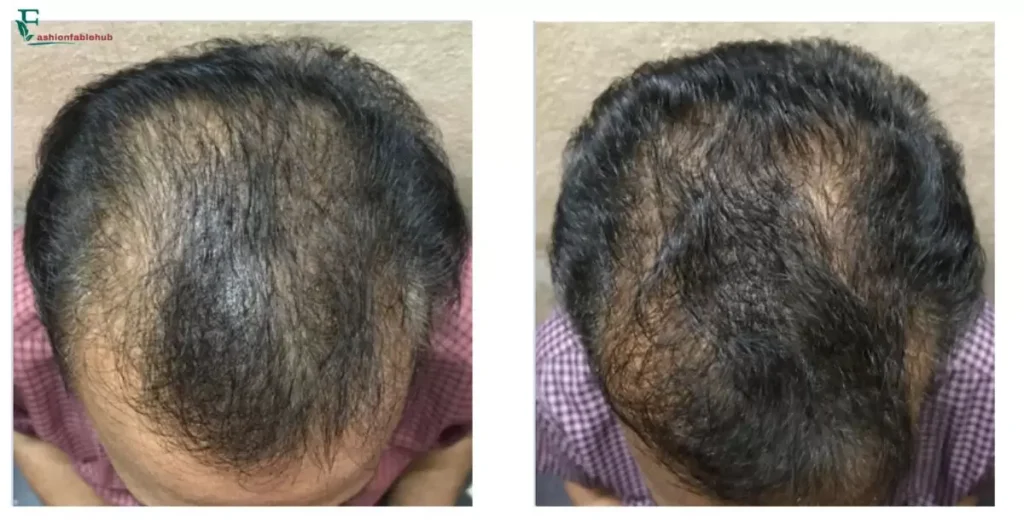
In addition to vitamins, mineral deficiencies like low iron trigger excessive hair shedding and loss. Iron delivers oxygen to follicles, supporting cell growth during the hair production cycle. Lacking iron causes slowed development, increasing shedding and hair thinning.
Iron deficiency develops if your diet lacks iron-rich foods. It also occurs due to health conditions causing low absorption rates for iron consumed. Women lose substantial iron during menstruation as well, elevating their risk for deficiency.
Bar graph showing percentage of women iron deficient by age demographic:
| Age Range | % Deficient |
| 12-49 years | Up to 30% |
| 50+ years | 11% |
Restoring iron intake prevents further hair loss. Choose gentle iron supplements avoiding forms that cause constipation or stomach upset. Boosting foods high in iron offers another solution for those with mild deficiencies.
DCSI Is Here to Help You Live a Healthier Lifestyle
At Delray Center for Skin Integrity (DCSI), we offer cutting-edge solutions for restoring healthy hair growth when thinning occurs due to vitamin or nutrient deficiencies. Get comprehensive lab testing to pinpoint any imbalances or shortfalls linked to your loss.
We create fully customized regimens of oral and topical treatments scientifically proven to balance levels, nourish follicles, and boost regrowth. Benefit from the latest therapies including low-level laser technology.
We also provide nutrition guidance, meal planning assistance, and diet monitoring to help you get sufficient amounts of vitamins, iron, and other hair-healthy nutrients. Contact DCSI in Delray Beach today to schedule your evaluation.
Uncovering the Biggest Vitamin Deficiencies That Cause Hair Loss
Hair loss is distressing at any age. While some degree of thinning with age is normal, excessive shedding indicates an underlying problem. Nutrient deficiencies are a major cause of hair falling out before reaching its natural final phase.
Getting inadequate vitamins over long periods stresses follicles, shrinking hair’s growth period. Strands grow back thinner and weaker with each cycle until bald patches develop.
Understanding how key vitamin and mineral shortfalls impact the hair lifecycle helps you target solutions to get growth flourishing again.
Understanding Hair Loss and Its Causes
Human hair grows continually in repetitive cycles. Each strand independently goes through three phases:
Anagen – Active Growing
Catagen – Transitional regression
Telogen – Resting
A healthy cycle lasts 2-7 years with thicker, stronger strands generated when you supply nutrients to follicles regularly. Vitamin inadequacy speeds up the cycle, producing wispy hairs that don’t reach full length before shedding.
While many factors influence alopecia and thinning, nutrition imbalance ranks as a top reason. Stress, hormonal shifts, aging, toxins, and scalp conditions also contribute to more hair falling out than growing in.
What Causes Vitamin Deficiencies in the First Place?
Since hair largely comprises proteins that rely on micronutrients, flowing strands reflect inner health. Deficiency occurs when intake fails to meet daily needs for prolonged periods. Why does this shortfall happen?
- Diet – Eating plenty of whole, nutritious foods usually satisfies vitamin needs. Restricted diets often lack diversity.
- Malabsorption – Digestive conditions like celiac or Crohn’s disease impair absorption of vitamins from foods.
- Lifestyle – Smoking, excessive alcohol intake, constant dieting or fasting deplete vitamins faster than diet provides.
- Medications – Drugs to treat health conditions can limit absorption or speed depletion.
- Increased Needs – During illness recovery, pregnancy or growth phases (adolescence, infancy) vitamin needs rise.
Even small, steady deficits accumulate over months. A daily shortfall of a few micrograms eventually causes clinical deficiency leading to hair fallout. The key vitamins and minerals linked to thinning hair are:
Vitamin D
- Triggers follicles to begin hair production cycle
- Maintains follicle health
- Sources: Sun, seafood, dairy, eggs
Biotin (Vitamin B7)
- Produces keratin proteins hair requires
- Transports nutrients into follicles
- Sources: organ meats, eggs, seeds, nuts
Iron
- Carries oxygen vital for robust hair cell division
- Aids growth during anagen phase
- Sources: Meat, seafood, beans, dark leafy greens
Diets predominate in processed foods yet low in whole, nutrient-dense options often fail to satisfy vitamin/mineral needs for lustrous locks.
Zinc
Next to iron, zinc deficiency most frequently aligns with substantial hair loss. Scalp levels must remain adequate since zinc assists many essential roles:
- Cell division and growth
- Structuring hair proteins
- Anagen phase progression
- Follicle enzyme activity
- Preventing follicles undergoing apoptosis
With shortfalls, excessive shedding occurs as growth slows and more hairs shift rapidly into telogen rest phase.
Eat more zinc-rich oysters, beef, nuts, seeds, and legumes or take supplements providing 25–45 mg zinc citrate daily under medical guidance.
Vitamin E
This vital nutrient protects tender hair follicle cells from free radical damage while boosting local circulation. Vitamin E also prevents moisture loss from hair shafts making strands smoother, stronger, and less prone to breakage even with brushing or heat styling.
Since few Americans eat ample vitamin E daily through seeds, nuts, vegetables, and wheat germ oil, taking supplements offering 400–800 IU daily supports healthy hair cycles under doctor supervision.
Vitamin A
Known for keeping skin smooth and eyesight sharp, vitamin A also ensures fast follicle growth cycles. It nurtures glands secreting oils that condition and protect emerging hair shafts too.
Lacking this vitamin usually shows first as rough, dry skin and next as brittle, splitting hair prone to breaking. Night blindness can also develop signaling deficient levels.
Eat more sweet potatoes, kale, red peppers, carrots, mango and beef liver to satisfy vitamin A needs or take supplements in moderation due to toxicity risks when overdone.
Niacin (Vitamin B3)
One key nutrient for moving blood sugars into cells efficiently for fueling biological processes is niacin (nicotinic acid). Follicles need consistent energy and ample blood flow to transform quickly from resting to growing phase.
Missing dietary niacin slows this shift while also reducing nutrients moving into follicles for fiber production. Eat niacin-rich poultry, beef, peanuts, brown rice, avocado and green vegetables to satisfy needs. Men require 16 mg niacin daily while women need 14 mg.
Vitamin B12
This essential water-soluble vitamin teams up with other B-complex nutrients to carry oxygen and nutrients inside follicles, stimulating prolific growth cycles.
Deficiency usually stems from a vegan or malabsorptive gastrointestinal disorder where intake fails to meet 4 mcg daily needs.
Taking B12 supplements orally or via injection restores levels to end hair loss. Consume more animal proteins, dairy and eggs too in order to avoid future deficiencies of B12 as well as iron, zinc and other hair-healthy minerals.
Fatty Acids
Essential fatty acids (EFA) deficiencies contribute to dry, lusterless hair prone to excessive breakage and follicle miniaturization linked to balding.
Two polyunsaturated EFAs — omega-3 alpha-linoleic acid (ALA) and omega-6 linoleic acid (LA) occur only from healthy dietary fats. Two additional omega-3s vital for robust hair, DHA and EPA, occur primarily in seafood (especially cold water fish).
When any EFA deficits, it shows fast in nail and scalp dryness or inflammatory imbalance causing follicles to degrade and stop producing thick hair strands.
Get more omega-3s by eating salmon, mackerel, tuna, whitefish or take 1-2 grams fish oil capsules daily. Consume more nuts, seeds, olive oil for adequate LA too.
Amino Acids
Keratin proteins comprise 90% of each hair strand using 18 different amino acids to link into strong yet flexible chains that resist breakage. If diet lacks these building blocks, follicles are unable to assemble keratin efficiently and hair strands grow in weaker and more brittle.
Diets predominate in junk foods often shortchange intake of two sulfur amino acids vital for follicular keratin — cystine and methionine. Also lacking may be amino acid lysine for cross-linking chains.
Eat more fish, poultry, beef and eggs to get keratin-boosting amino acids along with fruits, vegetables and nuts providing the widest variety of bioavailable amino acids for robust new hair growth.
Solutions and Treatment Options We Provide for Hair Loss
Restoring nutrient balance equates to reviving hair’s growth cycle and thickness. However, real deficiencies develop over months and reversing damage may take time too. Delray Beach & Wellington area residents can tap DCSI for hair restoration:
Testing – Diagnostic exams uncover vitamin, mineral and protein deficits stunting follicles
Custom Treatments – Medical teams tailor nutrient, topical, and light therapies to renew growth cycles
Ongoing Support – Doctors monitor progress, adjusting solutions until clients see satisfactory regrowth
Don’t lose hope if hair thinning distresses you. Schedule a DCSI consultation today to start the journey back to fuller, healthier hair!
Fight Vitamin Deficiencies & Restore Your Hair’s Vitality With Our Treatments
If deficient nutrient intake represents the root cause of your hair loss or scalp health issues, getting levels balanced again is essential for activating follicle regeneration. However, restoring internal health takes time and strategic adjustments in many cases.
Rather than leaving outcomes to chance with basic multivitamins, tap into Delray Center for Skin Integrity’s holistic clinical solutions:
Precision Testing – Our diagnostics labs check vitamin and mineral status along with hormones, toxic burdens, immune issues affecting hair cycles
Proactive Nutrition Plans – Doctors develop eating programs personalized to satisfy unique nutritional requirements plus strategic supplementation
Advanced Light Treatments – Photobiomodulation devices send nourishing light energy to prompt follicles into growth mode
Oxygen Delivery – Hyperbaric oxygen chambers saturate follicles with vital breathable oxygen to reactivate sluggish tissues
Daily Care Strategies – Experts educate on protecting fragile new growth with gentle hair care while also boosting volume visually
With DCSI’s multi-pronged clinical solutions, South Florida residents frustrated by thinning hair can overcome vitamin deficiencies while jumpstarting healthy regrowth. Contact us today to begin your transformation!
10 Vitamin Deficiencies That Are Linked To Hair Loss
Just as nutrients supply vitality internally, adequate vitamins and proteins also support healthy follicles for flowing tresses. Yet with nutrient-poor processed foods so pervasive in western diets now, deficiencies are more common than ever – and show dramatically in thinning, dull hair prone to breakage.
By recognizing which vitamin shortfalls frequently trigger loss and damage, proactive steps stop further degradation and encourage regrowth. Consider these 10 common culprits:
Iron – Ferrying oxygen to follicles for protein building
Zinc – Structuring hair proteins properly
Biotin – Stimulating follicle cell metabolism
Amino Acids – Assembling hair keratin chains
Vitamin D – Regulating mineral absorption for hair needs
Vitamin E – Protecting follicles from damaging inflammation
Vitamin C – Structuring collagen matrix around follicles
Niacin – Moving nutrients and energy to follicle cells
Vitamin A – Secreting follicle oils nourishing emerging hair
Vitamin B12 – Preventing loss of follicles’ regenerative abilities
When several deficiencies overlap, drastic shedding and complete baldness can ensue rapidly. At the first sign of thinning, seek testing to identify your unique nutritional deficits stunting follicles. Swift correction is vital to achieve regrowth.
DCSI offers breakthrough solutions for deficiency-related hair loss encompassing testing, treatments and ongoing wellness support. Contact our welcoming Delray Beach office to begin your transformation journey today!
The Importance of Vitamins for Hair Health

Flowing locks begin with a foundation of cellular health inside hair follicles. These intricate factories require the right balance of proteins, minerals, and vitamins to churn out flawless new hair strands continually.
Any shortfall or disruption in follicle nutrition manifests quickly as excessive shedding, slowed regrowth, low density, or complete baldness.
While genes play some part in hair robustness and longevity, optimal vitamin status maximizes what your DNA blueprint encodes. Cells simply cannot construct high quality keratin protein strands without adequate vitamins assisting all the metabolic machinery 24/7.
In addition to growth roles, essential vitamins have other pivotal jobs maintaining the glossy beauty of hair:
- Follicle oxygenation – B-complex vitamins
- Scalp circulation – Vitamin E
- Strand strength/flexibility – Amino acid balance
- Smooth cuticle moisture – Vitamin A
- Conditions hair quality – Vitamin H (biotin)
The nutritional partnership between lean protein foods and vitamin-rich fruits/veggies proves potently hair healthy. Yet when demands rise during growth, illness, or pregnancy cycles vitamin needs often go unmet unless you supplement wisely too.
Work with your DCSI wellness team to ensure no deficiencies undermine your genetic potential for phenomenally gorgeous hair now and in future decades too!
The Link Between Vitamin Deficiencies and Hair Loss
Your mane’s magnificence relies on having adequate nutrient building blocks inside follicles to continually produce flawless new strands with each growth cycle.
Multiple complex processes keep the growth (anagen) phase humming along smoothly for the 2-7 years that healthy hair thrives before shedding. Any missing elements – like key vitamins – disrupt cycles, resulting in premature regression (catagen) shrinkage or excessive resting (telogen).
Eventually significant vitamin deficiency translates to follicle damage, permanent thinning, and patchy bald spots as hairs miniaturize from lack of nutritional support.
Which vitamins most frequently link to hair devastation when deficient?
Vitamin C
Helps structure collagen fibers keeping follicles firmly anchored and flexible for prolific growth cycles. Oral vitamin C also improves iron absorption.
Folic Acid
Cell replication and tissue renewal relies on this B-complex nutrient to prevent DNA/chromosomal defects as follicle cells divide rapidly.
Vitamin B6
Teams up with folic acid and B12 for red blood cell production essential to carry nutrients and oxygen inside follicles stimulating growth.
Essential Fatty Acids
Sebum oil production relies on ample EFAs to lubricate and protect emerging new hair shafts from breakage and dryness.
Conclusion
Getting to the root cause of your hair loss is key to stopping further thinning and damage. Nutrient testing accurately pinpoints any vitamin or mineral deficiencies undermining the health and longevity of follicles. From there, customized treatment plans can balance levels, nourish follicles, and prompt robust regeneration.
With today’s testing precision and advanced hair restoration options, nutrient-related hair loss is highly treatable. Don’t wait for deficiencies to accumulate past the point of no return. Reach out now for solutions tailored to your unique nutritional needs and hair goals from the DCSI pros supporting your hair vitality!
We offer compassionate guidance each step so you can move confidently from distress back to gorgeous, flowing locks regardless of starting point. Contact DCSI today to begin!

